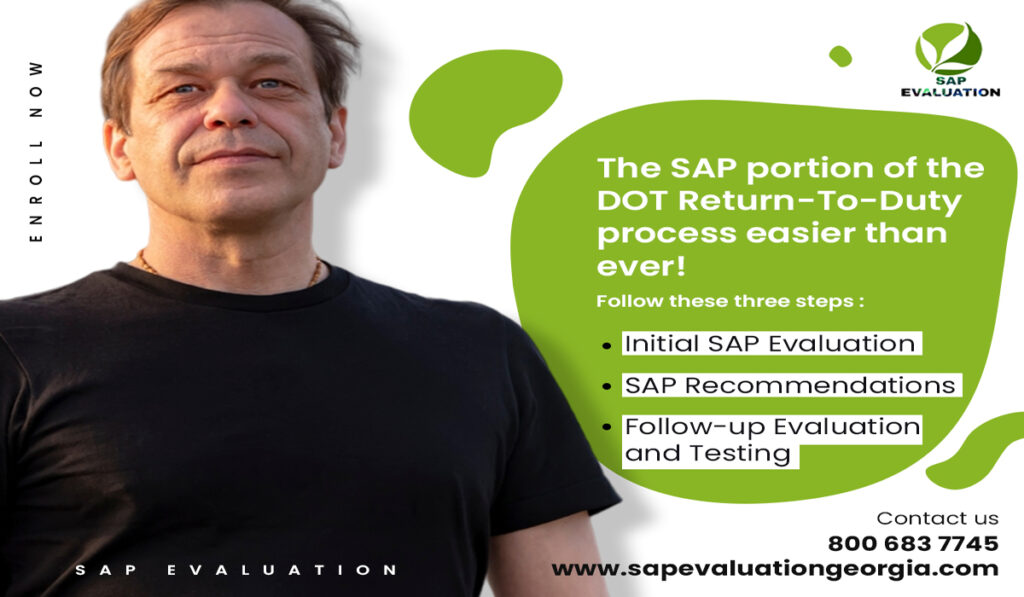How Does Substance Abuse Evaluation in Georgia Compare to National Data on Drug Use and Mental Health?
- 109 Views
- benchmark12530
- February 23, 2024
- health
The United States approach to SAP Evaluation Georgia stands out against national data on drug use and mental health. The state’s evaluation methods offer unique insights into prevalence rates, treatment efficacy, and emerging trends. By analyzing these findings, stakeholders gain valuable perspectives for tailored interventions and policy development. Georgia’s proactive stance in understanding and addressing substance abuse aligns with broader efforts to mitigate its societal impact. This comprehensive evaluation process underscores the state’s commitment to fostering healthier communities and addressing the complex challenges of addiction and mental health.
Understanding the Importance of Substance Abuse Evaluation
Understanding the significance of substance abuse evaluation is paramount in addressing addiction and mental health challenges. By conducting thorough evaluations, individuals, communities, and policymakers gain crucial insights into prevalence rates, underlying factors, and effective intervention strategies. These evaluations inform treatment plans and facilitate early detection and prevention efforts. Recognizing the importance of comprehensive evaluation underscores the commitment to promoting healthier outcomes and reducing the adverse effects of substance abuse on individuals and society as a whole.

Current State of Substance Abuse in Georgia: A Detailed Analysis
A meticulous examination of the current state of substance abuse in Georgia reveals a multifaceted landscape. Through comprehensive data analysis, trends in drug usage, prevalence rates, and demographics are elucidated, offering a nuanced understanding of the issue. This detailed analysis enables stakeholders to identify high-risk populations, pinpoint geographic hotspots, and tailor intervention strategies accordingly. Moreover, it sheds light on the interconnectedness of substance abuse with other societal challenges, such as mental health disparities and socioeconomic factors. Armed with this knowledge, policymakers, healthcare professionals, and community leaders can collaborate effectively to implement targeted initiatives aimed at prevention, treatment, and support, ultimately striving toward a healthier and more resilient Georgia.
National Trends in Drug Use and Mental Health: Key Findings and Statistics
Examining national trends in drug use and mental health yields critical insights into the prevailing landscape. Through rigorous data analysis, key findings emerge, showcasing prevalence rates, emerging substances of concern, and demographic patterns. These statistics highlight the evolving nature of substance abuse and mental health challenges, underscoring the need for adaptive intervention strategies. Moreover, they provide valuable benchmarks for assessing the effectiveness of prevention and treatment efforts over time. By staying abreast of these trends and statistics, policymakers, healthcare providers, and advocates can collaborate more effectively to address the complex interplay between drug use and mental health, ultimately fostering healthier communities nationwide.
Comparing Georgia’s Substance Abuse Evaluation Practices with National Standards
Comparing Georgia’s substance abuse evaluation practices with national standards illuminates areas of alignment and potential areas for improvement. Through a comprehensive assessment, it becomes evident how Georgia’s protocols measure up in terms of rigor, inclusivity, and effectiveness. Identifying commonalities allows for the reinforcement of successful strategies, while discrepancies highlight opportunities for refinement and enhancement. By leveraging insights from national standards, Georgia can optimize its evaluation processes to serve its population’s needs better and stay at the forefront of evidence-based practices. This comparative analysis underscores the importance of continuous evaluation and adaptation in ensuring that substance abuse interventions are responsive, equitable, and ultimately successful in improving individual and community outcomes.
The Impact of Socioeconomic Factors on Substance Abuse: Insights from Georgia and Beyond
The impact of socioeconomic factors on substance abuse reveals profound insights gleaned from Georgia and broader contexts. Through rigorous analysis, it becomes evident how economic status, education, and access to resources intersect with substance use patterns. These insights shed light on disparities in prevention, treatment, and recovery services, underscoring the need for targeted interventions. By examining experiences both within and outside Georgia, a comprehensive understanding of the complex interplay between socioeconomic factors and substance abuse emerges. Armed with this knowledge, stakeholders can develop holistic strategies that address root causes and promote equitable access to support services. This holistic approach is essential in fostering resilient communities and mitigating the adverse effects of substance abuse on individuals and society.
Leveraging Data for Effective Substance Abuse Intervention Strategies in Georgia and Across the Nation
Leveraging data is paramount in crafting impactful substance abuse intervention strategies both within Georgia and across the nation. By analyzing comprehensive data sets, stakeholders gain invaluable insights into prevalence rates, emerging trends, and demographic patterns. This knowledge is a foundation for evidence-based decision-making, guiding the development and implementation of targeted interventions. Moreover, data-driven approaches enable the allocation of resources where they are most needed, ensuring maximum impact and efficiency. As we move forward, it is imperative to continue prioritizing data collection, analysis, and utilization in our efforts to combat substance abuse. By doing so, we can foster healthier communities, support individuals in their recovery journeys, and ultimately mitigate the profound societal impact of substance abuse.
Examining Regional Disparities: Variations in Substance Abuse Trends

Examining regional disparities provides valuable insights into the diverse landscape of substance abuse trends. Through meticulous analysis, variations in prevalence rates, drug preferences, and treatment accessibility become apparent across different geographical areas. This examination illuminates the unique challenges faced by communities, such as urban-rural divides or disparities in healthcare infrastructure. By understanding these regional nuances, stakeholders can tailor interventions to address specific needs effectively. Moreover, identifying areas with heightened vulnerability enables targeted resource allocation and support, fostering more equitable outcomes. As we continue to explore these disparities, it becomes increasingly evident that localized approaches are essential in effectively combating substance abuse and promoting holistic community well-being.
Innovative Approaches: Implementing Evidence-Based Interventions
Championing innovation is key to implementing evidence-based interventions in combating substance abuse. By staying abreast of the latest research and best practices, stakeholders can develop cutting-edge strategies that yield meaningful results. These approaches may include novel treatment modalities, technology-driven interventions, or community-based programs tailored to specific populations. Through a commitment to innovation, we can enhance the effectiveness and accessibility of substance abuse interventions, reaching individuals where they are and meeting their diverse needs. By harnessing the power of innovation, we can drive positive change and make significant strides toward reducing the impact of substance abuse on individuals and communities alike.
Building Collaborative Partnerships: Strengthening Support Networks for Recovery
Establishing collaborative partnerships is pivotal in fortifying support networks for recovery from SAP Evaluation Georgia. By forging alliances among healthcare providers, community organizations, and governmental agencies, we can create a united front against addiction. These partnerships facilitate the sharing of resources, expertise, and best practices, enabling more comprehensive and coordinated care for individuals in recovery. Moreover, collaborative efforts foster a supportive environment that promotes accountability, empowerment, and long-term success. Through ongoing collaboration, we can leverage collective strengths to address the multifaceted challenges of substance abuse and ensure that individuals receive the holistic support they need to thrive on their journey to recovery.
Recent Posts
- DigitilizeWeb: The Ultimate Choice for Bespoke Mobile App Development Services in the UK
- Top 3 Online Baby Gift Shops in Singapore for Memorable Newborn Presents
- Where to Find Reliable Suppliers to Buy iPhones in Bulk Wholesale
- How Licensed Access Control Fencing Can Secure Your Property?
- Embracing the Philosophy of “I Fear No One, But Respect Everyone” – Tymoff
